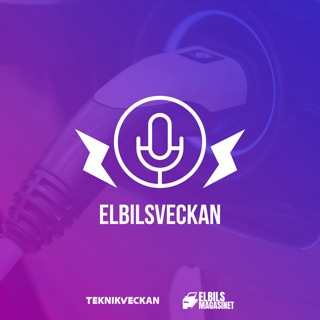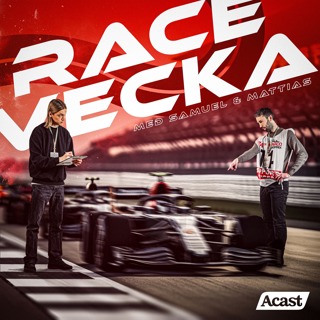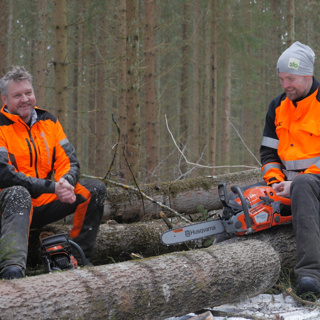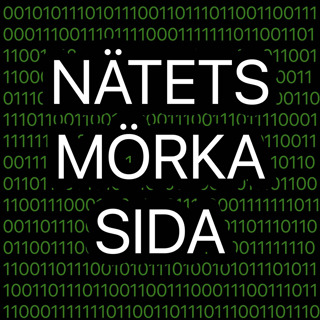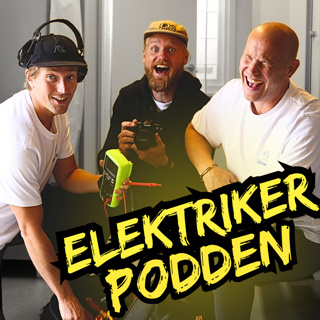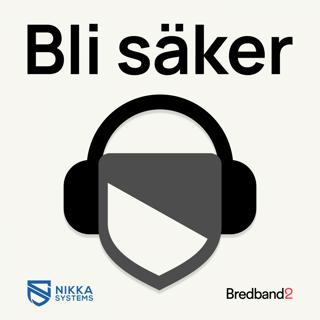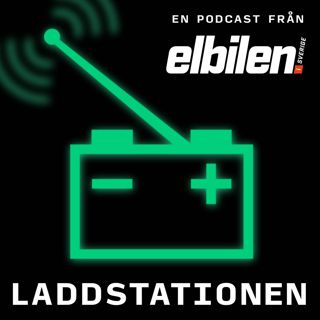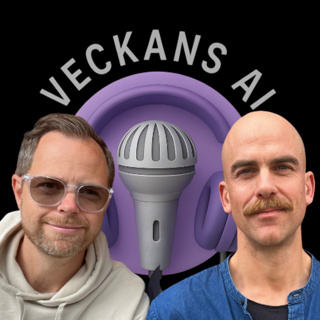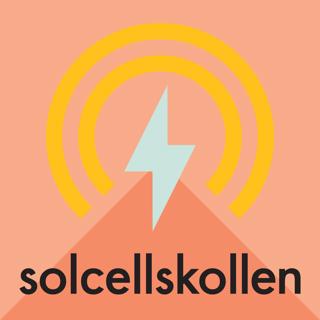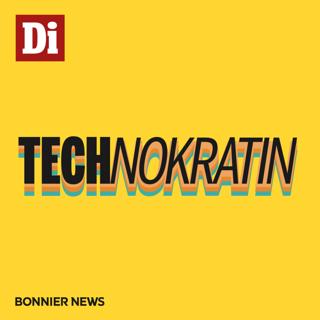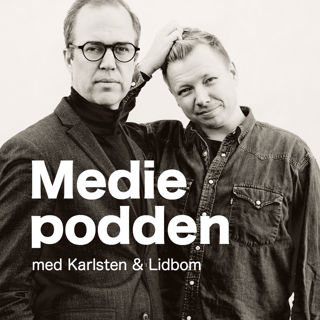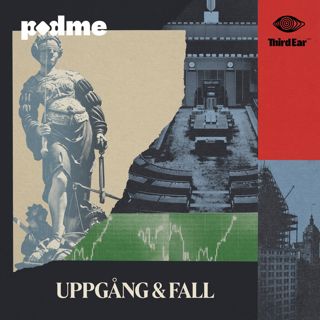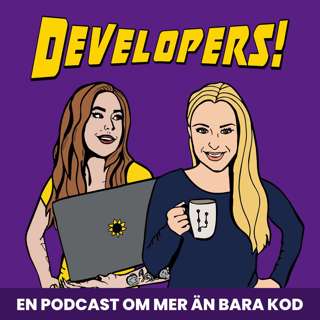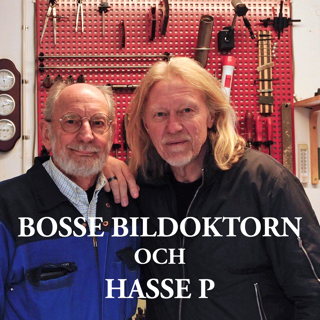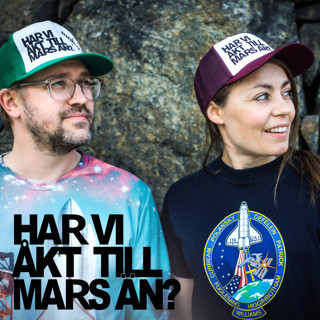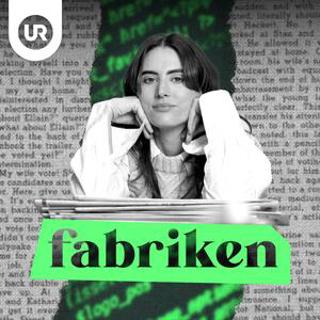
Are Your Collaboration Tools Hijacking Your Productivity? with Jim Benson
Summary In this conversation, Dave Prior and Jim Benson discuss the challenges of remote work, the impact of collaboration tools on productivity, and the importance of creating humane workspaces. They explore the dynamics of meetings, the toxicity of over-communication, and the need for regular maintenance in team processes. Jim shares insights from his course on cleaning toxic waste in workplaces, emphasizing the significance of visual management and effective communication to foster a healthier work environment. Takeaways • Work should be done without fear or trepidation. • Remote work requires understanding information needs within teams. • Meetings often become unproductive due to over-communication. • Context switching can lead to frustration and decreased productivity. • Creating humane workspaces is essential for team dynamics. • Regular maintenance of team processes prevents issues from escalating. • Collaboration tools need to be used intentionally and effectively. • Visual management can help reduce workplace toxicity. • Toxic systems lead to hiring toxic leaders. • Addressing workplace toxicity is a collective responsibility. Chapters 02:11 Introduction to Jim Benson and Work Dynamics 05:09 The Challenges of Remote Work and Collaboration Tools 08:07 Meeting Overload and Productivity Killers 11:14 Communication Tools and Their Inefficiencies 14:11 The Impact of Context Switching on Work 17:07 Creating Humane Workspaces 20:10 The Role of Tools in Team Collaboration 23:08 Cleaning Toxic Waste in Work Environments 26:15 Conclusion and Course Information Links from the episode Cleaning Toxic Waste Course: https://modusinstitute.com/course/toxic-waste Modus Institute: https://modusinstitute.com/ The Collaboration Equation: https://www.collaboration-equation.com/ The Agile Network December Micro Conference (Dec 16-17): https://theagilenetwork.com Contacting Jim LinkedIn: https://www.linkedin.com/in/jimbenson/ Email: jim@moduscooperandi.com
13 Dec 202431min

Bad Choices in Every Direction with Galen Low
Summary In this conversation, Dave Prior and Galen Lowe explore the complexities of digital project management, emphasizing the importance of understanding digital projects, the role of project managers in decision-making, and the necessity of integrity in client relationships. They discuss the evolution of project management, the significance of building trust, and the challenges of navigating stakeholder expectations. The conversation highlights the need for project managers to learn from their experiences and adapt to the changing landscape of the profession, ultimately advocating for a supportive and humane work environment. This podcast was originally recorded in video. If you'd like to check out that version you can find it here: https://youtu.be/T6l6xRsT76A Takeaways - Digital projects involve a combination of people, pixels, and code. - Learning should not solely come from the school of hard knocks. - Project managers must facilitate decision-making processes. - Understanding choices is a key responsibility of project managers. - Decisions must be made, even when there are no good options. - Earning the right to ask questions is crucial in stakeholder management. Integrity is essential in maintaining client relationships. - Project management is evolving to focus on career health and continuous learning. - Building trust is fundamental to successful project management. - The messiness of projects is part of the journey towards success. Chapters 01:52 Introduction to Digital Project Management 07:55 The Role of Project Managers in Decision Making 13:56 Understanding Stakeholder Dynamics 22:24 Navigating Client Expectations and Project Integrity 28:39 Evolving Perspectives on Work and Loyalty 34:49 Forward Momentum in Problem Solving 41:39 Embracing the Messiness of Project Management Check out Galen's original post on LinkedIn https://tinyurl.com/3br78w6d Contacting Galen LinkedIn: https://www.linkedin.com/in/galen-low-digital-transformation-advisor/ Digital Project Manager: https://thedigitalprojectmanager.com Podcast: https://thedigitalprojectmanager.com/digital-project-manager-podcast/ Agile for Project Managers Show My new podcast/show is available on The Agile Network along with a wide range of brand new content we share every week from our 80+ experts from all corners of the Agile space. Link: https://theagilenetwork.com/ You can use the promo code DRUNKENPM12C202 to get a 20% discount of any of our membership options.
21 Nov 202443min

Overcoming Fear as a Non-Technical Project Manager with Kay Keizer
Summary In this conversation, Dave Prior and Kate Kaiser discuss the challenges faced by non-technical project managers, particularly in overcoming fear and embracing difficult conversations. Kate shares her experiences in project management, emphasizing the importance of self-awareness, communication, and building trust with clients. They explore strategies for managing energy and maintaining transparency in client relationships, ultimately highlighting the significance of creating positive experiences in every interaction. Takeaways - Embracing fear can lead to better outcomes. - Self-awareness is crucial in managing stress and energy. - Being shameless helps in uncomfortable conversations. - Asking questions is essential for clarity and understanding. - Trust and honesty build strong client relationships. - Every interaction should be a positive experience. - Fear is a common experience; it's okay to feel it. - Having a plan B can ease communication challenges. - Project managers don't need to know everything; leverage your team. - Building relationships is more important than the project itself. Chapters 00:00 Introduction to Kate Kaiser and Her Background 03:21 Embracing Fear in Project Management 06:16 Navigating Non-Technical Challenges 09:17 Self-Awareness and Energy Management 12:09 Honesty and Transparency in Client Relationships 15:19 Building Trust and Positive Experiences 18:26 Closing Thoughts and Conference Preview To learn more about the 2024 Digital PM Summit - https://bureauofdigital.com/event/digital-pm-summit-2024 Contacting Kay - Plank: https://plank.co/ - LinkedIn: https://www.linkedin.com/in/kayla-keizer/
8 Okt 202420min

Unleashing The Power Of Project Management With Val Hinze
Summary In this conversation, Dave Prior and Val Hinze discuss the evolution of project management roles, the importance of creating a supportive PMO structure, and the significance of servant leadership in fostering a healthy work environment. Val shares insights on how Mighty Citizen has redefined project management to focus on career growth, client relationships, and sustainable practices. The discussion also touches on the upcoming Digital PM Summit and Val's talk about the journey of project management within her organization. If you'd prefer to watch the video version of this podcast you can find that here: https://tinyurl.com/3nwsmyud Takeaways • Creating a structure for project manager success is essential. • Support from leadership is crucial for project managers. • Client happiness is a key measure of project success. • Fostering growth and safety for project managers is rare but necessary. • Innovating together as a team leads to better outcomes. • Building sustainable client relationships is a new approach. • Continuous improvement should be a focus in project management. • Val's journey reflects the evolution of project management roles. • The PMO can be a supportive entity rather than a hindrance. • Val's superpower lies in her ability to adapt and innovate. Chapters 00:18 Introduction to Project Management and Personal Journey 03:09 Creating a Supportive PMO Structure 06:09 The Importance of Career Trajectory in Project Management 09:06 Fostering a Healthy Work Environment 12:07 Defining Success in Project Management 15:10 Performance Reviews and Growth Opportunities 18:11 Val's Talk at the Digital PM Summit 21:08 Val's Superpower and the Future of PMOs 2024 DIGITAL PM SUMMIT LINKS Digital PM Summit: https://bureauofdigital.com/event/digital-pm-summit-2024 Val's Speaker Page at the 2024 DPM Summit: https://bureauofdigital.com/val-hinze-dpm-summit-2024 Dave's Speaker Page at the 2024 DPM Summit: https://bureauofdigital.com/dave-prior-dpm-summit-2024 CONTACTING VAL LinkedIn: https://www.linkedin.com/in/valhinze/ Val at Mighty Citizen: https://www.mightycitizen.com/team/valerie-hinze Mighty Citizen: https://www.mightycitizen.com/
1 Okt 202424min

Leading Creative Teams Through Change with Sara Doubleday
Summary In this conversation, Dave Prior and Sara Doubleday discuss the complexities of managing change within creative teams, the integration of AI in creative processes, and the importance of maintaining human connections in a remote work environment. Sara shares her experiences with team mergers, the challenges of efficiency versus human connection, and the need for a supportive agency culture that fosters collaboration and creativity. The discussion highlights the nuances of change management and the significance of treating team members as individuals rather than mere processes. If you'd prefer to watch the video version of this podcast, you can find it here: https://www.projectmanagement.com/blog-post/77403/leading-creative-teams-through-change-with-sara-doubleday Takeaways • The role of a creative lead involves clearing blockers for the team. • AI is a tool to enhance creativity, not replace it. • Change management requires grace and understanding of individual differences. • Team dynamics are crucial for successful project execution. • Building connections in remote teams takes intentional effort. • Efficiency should not come at the cost of human connection. • Successful change is a complex, non-linear process. • Agency culture can significantly impact team morale and productivity. • Recognizing the value of individual contributions is essential. • Continuous learning from past experiences is vital for growth. Chapters 00:18 Introduction to Chaos and Collaboration 03:32 Navigating Change in Creative Teams 06:13 The Role of AI in Creative Processes 13:01 Building and Rebuilding Teams 16:04 Misconceptions About Change Management 19:49 Reflections on Change and Team Dynamics Digital Pm Summit: https://bureauofdigital.com/event/digital-pm-summit-2024 Sara's Speaker Page at the 2024 DPM Summit: https://bureauofdigital.com/sara-doubleday-dpm-summit-2024 Dave's Speaker Page at the 2024 DPM Summit: https://bureauofdigital.com/dave-prior-dpm-summit-2024 Contacting Sara: LinkedIn: https://www.linkedin.com/in/sara-doubleday/ Web: https://www.saradoubleday.com Seer Interactive: https://www.seerinteractive.com
23 Sep 202422min

An interview with Jimi Fosdick of Fearless Agility
Summary In this episode, Jimi Fosdick joins Dave for a conversation about his journey from traditional project management to agile. They discuss the challenges of applying traditional project management to software development, the importance of understanding the context and problem domain when choosing project management approaches, and the misuse of the term 'agile' in the consulting industry. They also touch on the legacy of Frederick Taylor and the need for a people-centered approach in project management. The conversation explores the challenges of traditional project management and the need for a more empirical and agile approach. They discuss the problems with big upfront planning, the importance of shorter cycle times, and the fear of failure. The conversation also touches on the need for more humane workspaces and the changing nature of work. The principal themes include the limitations of traditional project management, the benefits of an empirical approach, and the evolving workforce and work environment. Takeaways • Traditional project management is effective for problems that can be solved on paper upfront, but may not work well for software development. • Agile approaches, such as Scrum, are better suited for software development and other complex, empirical problems. • The term 'agile' has become an overloaded and misused brand in the consulting industry. • Hybrid approaches that combine traditional project management and agile practices can be problematic and may not fully embrace the values and principles of agile. • A people-centered approach is essential in project management, and the focus should be on collaboration, respect, and solving the right problems. Traditional project management relies on upfront planning, which can lead to longer cycle times and higher failure rates. • An empirical approach, such as Agile, allows for shorter cycle times and the ability to adapt and change as needed. • The fear of failure often hinders organizations from embracing more agile and iterative approaches. • There is a growing emphasis on creating more humane workspaces and allowing for more flexibility and creativity in the workplace. • The nature of work is changing, and organizations need to adapt to the expectations and needs of the new generation of workers. Chapters 02:20 Introduction and Background 05:52 The Challenges of Traditional Project Management in Software Development 08:33 Differentiating Scrum from Traditional Project Management 12:13 The Misuse of the Term 'Agile' 14:38 The Problem with Hybrid Approaches 22:17 Legacy Code in Our Heads: Shifting the Project Management Paradigm 26:21 The Benefits of an Empirical Approach 28:46 Overcoming the Fear of Failure 33:18 Creating More Humane Workspaces 39:03 The Changing Nature of Work Contacting Jimi - Web: https://fearlessagility.com/ - X: https://x.com/FearlessAgility - Facebook: https://www.facebook.com/FearlessAgility/ - Instagram: https://www.instagram.com/realFearlessAgility/ - Courses on the Scrum Alliance site: https://tinyurl.com/yjc2rtmf Links from Dave's Intro - The Art of War for Collaboration Course http://modusinstitute.com/course/art-of-war-collaboration - Guided Personal Kanban (September 2024) http://modusinstitute.com/course/guided-pk-sep-usa The Agile Network* https://go.theagilenetwork.com/l/web-dprior Use the discount codes below to get either 20% or 2 months of free access 2 Free Months - DRUNKENPM10CM 20% off Annual - DRUNKENPM10C20 Contacting Dave Linktree: https://linktr.ee/mrsungo
31 Aug 202444min

Being a Product Owner with No Direction From Above w Richard Cheng
In this conversation, Dave Prior and Richard Chang discuss the challenges that product owners face when they don't receive the support and direction they need from their leadership. They explore strategies for product owners to navigate these situations, including having open and honest conversations with leadership, running experiments to validate assumptions, and finding mentors or support networks. They also emphasize the importance of understanding the needs and perspectives of stakeholders and users, and the need for product owners to manage their space and hold their ground, even in the face of power dynamics. Overall, the conversation highlights the importance of effective communication, collaboration, and continuous learning in the role of a product owner. Takeaways * Product owners often struggle when they don't receive the support and direction they need from their leadership. * Having open and honest conversations with leadership can help product owners gain clarity and alignment on product strategy and goals. * Running experiments and validating assumptions can help product owners make informed decisions and mitigate risks. * Finding mentors or support networks can provide guidance and help product owners navigate challenging situations. * Understanding the needs and perspectives of stakeholders and users is crucial for product owners to make effective decisions. * Effective communication, collaboration, and continuous learning are key skills for product owners to succeed in their role. Chapters 04:55 Introduction and Background 07:12 Challenges of Product Ownership 11:49 Taking Initiative and Creating Strategic Direction 17:39 Validating Assumptions and Removing Bias 27:56 Coping Strategies and Social Engineering 31:01 Conclusion and Plug for Richard's Classes Contacting Richard Web: www.agilityprimesolutions.com Email: richard.cheng@agilityprimesolutions.com LinkedIn: www.linkedin.com/in/richardcheng/ Twitter: twitter.com/richardkcheng Contacting Dave Linktree: https://linktr.ee/mrsungo LinkedIn: https://www.linkedin.com/in/mrsungo/ Links from Dave's Intro The Agile Network* https://theagilenetwork.com/ *If you’d like a discount on an annual membership or want to try a month for free, send an email to dave@theageilnetwork.com and let me know. Agile 2024 Interviews: https://drunkenpm.blogspot.com/2024/07/agile-2024-all-interviews.html The Art of War for Collaboration Course https://modusinstitute.com/course/art-of-war-collaboration Guided Personal Kanban (September 2024) https://modusinstitute.com/course/guided-pk-sep-usa Public Scrum Training CSM/CSPO/A-CSPO https://www.scrumalliance.org/courses-events/search?tr=14153&cnty=US
13 Aug 202431min

The Edge Collection w Si Alhir
Summary In this conversation, Si Alhir discusses the concepts of agility, resilience, and anti-fragility and how they relate to navigating stress and achieving growth. He emphasizes the importance of embracing stress and using it as a tool for adaptation and evolution. Si also highlights the need for balance between order and disorder, and the dangers of too much of either. The conversation touches on examples such as vaccinations, exercise, and the impact of COVID-19 on individuals and organizations. Si Alhir discusses how ecosystem thinking and the concept of the edge play a role in increasing agility, resilience, and antifragility in organizations. He shares real-life examples of how organizations have leveraged these concepts to overcome challenges and achieve success. Si also introduces the Edge Collection, a set of instruments that help assess and cultivate agility, resilience, and antifragility at the individual, team, enterprise, and ecosystem levels. Takeaways - Agility, resilience, and anti-fragility are degrees on a spectrum, not absolute elements. - Stress is necessary for growth and building resilience, but it must be leveraged intelligently. - The key is to seek stress and disorder proactively, rather than reacting to it. - The in-between, or the edge, is where the magic happens and where organizations and individuals thrive. - Too much order or too much disorder can be debilitating, so balance is crucial. - The COVID-19 pandemic highlighted the need for adaptability and the challenges of navigating extreme situations. Ecosystem thinking is a worldview that can be applied to organizations, teams, technical architectures, infrastructure, and society. - Increasing agility, resilience, and antifragility requires exploratory and discovery work to understand what factors contribute to these qualities and how to amplify them. - The edge is where agility, resilience, and antifragility intersect, and maintaining the tension between these three is crucial. - The Edge Collection is a set of instruments that assess and cultivate agility, resilience, and antifragility at different levels of an organization. - Ecosystem enterprises are those that thrive on the edge, balancing stability and adaptability to navigate complex environments. Chapters 00:00 Podcast Overview and Annoucements 03:08 Introduction and Origin Story 06:24 The Edge: Embracing Stress and Anti-Fragility 13:17 Agility, Resilience, and Anti-Fragility as Muscle Fibers 28:55 Navigating Extreme Situations: Lessons from COVID-19 30:50 Introduction to Ecosystem Thinking and the Edge 33:20 Understanding Ecosystems and Applying Ecosystem Thinking 35:45 The Five E's and Five C's of Ecosystem Thinking 42:26 Introducing the Edge Collection: Assessing and Cultivating Agility, Resilience, and Antifragility 46:24 The Edge: Where Agility, Resilience, and Antifragility Intersect 49:29 Cultivating Agility, Resilience, and Antifragility with the Edge Collection 52:13 Thriving on the Edge: Balancing Stability and Adaptability in Ecosystem Enterprises Links from the podcast Contacting Si Alhir Si’s books on Amazon: https://amazon.com/author/salhir LinkedIn: https://www.linkedin.com/in/salhir/ The Art of War in the Wild https://tinyurl.com/3abab6pb The Edge Collection on Comparative Agility https://www.comparativeagility.com/capabilities/team-edge-assessment The Art of War for Collaboration https://modusinstitute.com/course/art-of-war-collaboration Guided Personal Kanban Class with Dave Prior and Mark Kilby https://modusinstitute.com/course/guided-pk-sep-usa The Agile Network https://theagilenetwork.com/ Use Promo Code DRUNKENPM8C20 to get 20% off Annual Membership or DRUNKENPM8CM to get 1 Month Free
28 Juli 202453min



